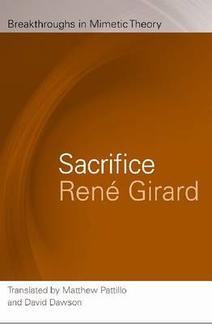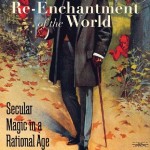![Calasso makes an important distinction, "For Plato [ardor, possession, madness] was the main path to knowledge. For us it’s become the main path to the lunatic asylum."](https://wp-media.patheos.com/blogs/sites/455/2015/01/ardor.jpg)
First, Talleyrand; second, everything else.
It seems that, Ardor, Calasso’s latest book translated into English is about: first, sacrifice in Vedic religion; second, everything else.
The Paris Review published an “Art of Fiction” interview with Calasso to coincide the release of Ardor. It gives you a good idea of what Calasso work is all about and how his writing grew out of his eclectic background.
In this excerpt from the interview Calasso talks about sacrifice. It is well-worth quoting because it contains the key to all his other books such as The Marriage of Cadmus and Harmony, K. (on Kafka), and Literature and the Gods:
INTERVIEWER
The notion of sacrifice lies behind almost everything in your work. The other striking theme is ebbrezza, which seems difficult to translate, as the word is polysemous in Italian.
CALASSO
All of my books have to do with possession. Ebbrezza, rapture, is a word connected with possession. In Greek the word is mania, madness. For Plato it was the main path to knowledge. For us it’s become the main path to the lunatic asylum. So you see that from Schreber up to La folie Baudelaire, the theme runs through my work. Even in my last book, L’ardore, of course. The Vedic people developed the most rivetingly complex theories and rituals about soma, the mysterious plant that provoked rapture.

This is classic Calasso on a particular topic and its relation to several different historical periods. It’s preceded by a statement that ties religion and sacrifice to, well, everything:
INTERVIEWER
It’s strange, this desire to turn Adelphi—and yourself—into a political machine. In fact, you are far more interested in transcendence than in politics.
CALASSO
Not so much transcendence, but the perception of the powers in us and around us. People talk a lot about religion, but they might as well be talking about huge political parties. The most delicate point to grasp is that society itself has become the major superstition of our times. This is the pivot of the last section of L’ardore. What I mean is that the belief in society as the ultimate crucible of progress creates a vast amount of bigotry even in the so-called secular world. So in actual fact it’s difficult to find an intellectually rigorous atheist. Though I have met many secular bigots.
OK, so I admit this post was written mostly as an excuse to quote that last bon-mot. But Calasso nonetheless does have a point as a recent article on New Atheism points out. It claims, “The ‘New Atheists’ have gained traction because they give intellectual cover to Western imperialism.”
Odds and ends: if you know French I have a real treat for you. Below is video of a debate between Rene Girard and Roberto Calasso. Another connection: Cynthia Haven reports Calasso recently gave the Rene Girard Lecture at Stanford on “the last superstition.”











